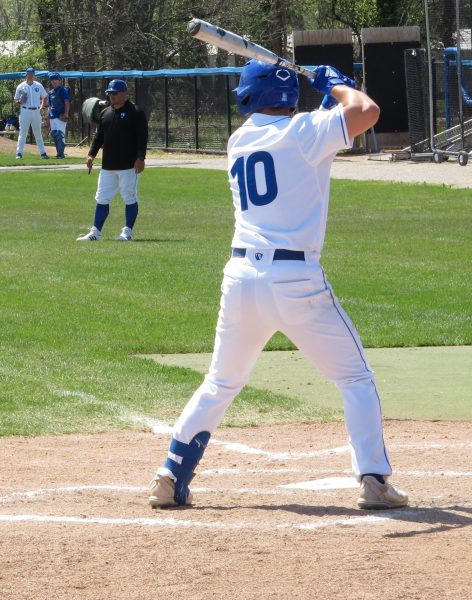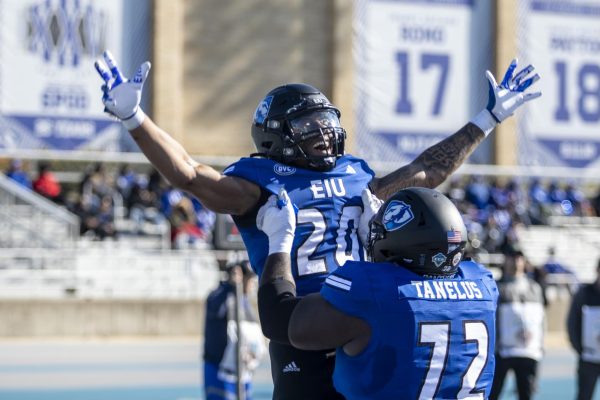Helpful or just a headache
For many children, the thought of having a parent as a coach in sports growing up can be a scary idea, but, in some cases, it can work out and give the athlete an edge over other competitors.
Young athletes who are coached by their parents throughout their youth are usually subject to greater pressure than other players, professor of sociology Craig Eckert said. Eckert spoke about the subject, not only as a teacher of the Eastern course “The Sociology of Sports,” but through first-hand experience.
“Parents who are coaches have a tendency of making (their kids) out to be role models for the rest of the team,” Eckert said. “Parents won’t forgive the little slacks that they would with other kids.”
A parent’s high and usually unrealistic expectations of their son’s or daughter’s abilities and talent is one of the reasons parents put pressure on their children, Eckert said. Lloydene Searle, Eastern head softball coach, has seen some of those high expectations from her own players who have been coached by their parents.
“Some parents want to keep coaching in the stands even when their child has moved to the next level,” Searle said. “Some kids will play the same if their parent’s are there or not, but kids will often put undue pressure on themselves because of their parents.”
Another pitfall of having a coaching parent is it becomes such a bad experience that the young athlete could become completely disinterested in sports.
“I had an essay written by a student who was coached by her father and never wanted to play again,” Eckert said. “I had another student who was a fine athlete who played in college, and she said the most humiliating experience in her life was when she got hurt in softball and her dad (the coach) didn’t even come out to help her because she thought she was a baby. These are no isolated cases.”
On the other hand, the relationship between a parent and a child can be positive.
“Kids can get the insight of their parents as a coach and know how hard it is on them, and the coaches will know the role of their kid and how tough it is on them,” Eckert said. “It can form a mutual respect and bond between parents and kids.”
Outside of the family relationship, the experience can also help an athlete on the field. Eastern football defensive coordinator Roc Bellantoni has several coaches’ sons on his team, including defensive tackle Marcus Lorick, receiver Ryan Voss and quarterback Matt Schabert.
“If you have a player that has grown up around football, they’re going to understand the commitment and the preparation that goes into the sport,” Bellantoni said. “Those players will have intangibles that other won’t.”
And when it comes time to recruit, Bellantoni said, it doesn’t hurt if they know that a player grew up as a coach’s kid.
“It’s a definite feather in their cap,” Bellantoni said. “If they are good citizen, a good athlete and a good student, it can put them over the edge when it comes to recruiting.”












































